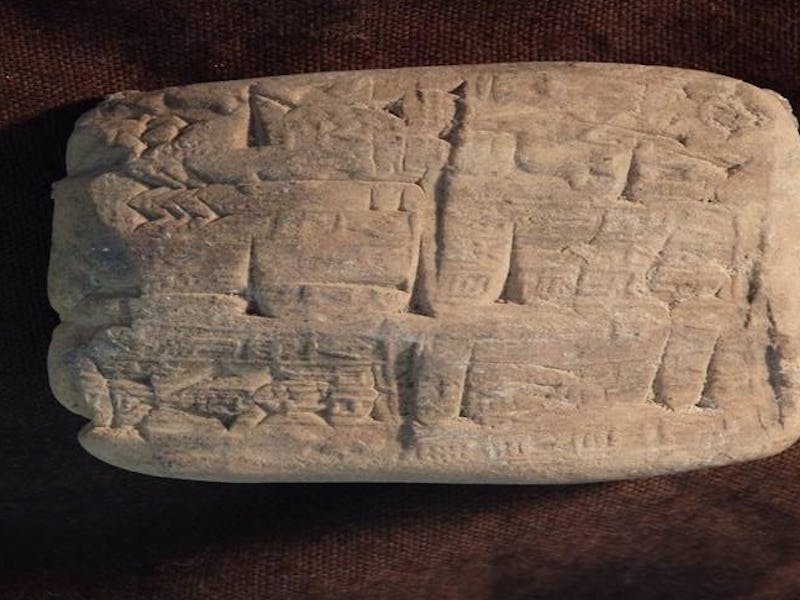Hobby Lobby Will Return Artifacts Stolen from World's First Civilization
An archaeologist explains the whole thing.

In any other era, the fact that a major arts & crafts retailer bought thousands of smuggled artifacts from the world’s first-known civilization to sell to the American public would be the scandal of the year. But since we live in M.C. Escher’s interpretation of purgatory, this absurd saga about Sumerian cuneiform tablets seems to have slipped through the cracks of our consciousness.
The story still isn’t over, an archaeologist tells Inverse.
On Tuesday, U.S. Immigration and Customs Enforcement (ICE) announced that Hobby Lobby would be returning 4,000 artifacts back to Iraq on Wednesday. According to a 2017 document from the U.S. Department of Justice, in 2010, the mega-chain bought 5,500 artifacts from dealers based in the United Arab Emirates (UAE) and Israel. Hobby Lobby purchased the artifacts, ostensibly for the Museum of the Bible in Washington D.C., after an “expert on cultural property law” had strongly advised against the transaction, NPR reports. Hobby Lobby settled a $3 million civil suit in July 2017 with ICE in the Eastern District of New York.
One of the stolen tablets.
To add another layer of absurdity, some of the artifacts, which contained cuneiform tablets from Ancient Mesopotamia, were intentionally mislabeled as “clay tiles” or “ceramic tiles.” Oh yeah, and all this smuggling may have inadvertently funded ISIS, which has reportedly made millions of dollars selling ancient artifacts.
Even though this all sounds like a seriously deranged reboot of Raiders of the Lost Ark, archaeologist David S. Anderson of Radford University says there’s an important lesson to be learned here.
“Looters destroy that context”
“Archaeology is not about that one great object that ‘belongs in a museum,’ but the context that object comes from,” he tells Inverse. “At a basic level, a pottery vessel on its own doesn’t tell us very much, but if that pottery was found in a grave, a storage room, or a kitchen, we can learn so much more about the people who made it. Looters destroy that context, seeking to get their hands on the solitary object that for them is solely of monetary value.”
Of course, even within looting, there’s layers of nuance that usually goes unnoticed.
“The under-appreciated problem of looting is that the money trickles up, not down,” Anderson explains. “The majority of looted objects are sold for large sums of money on the international antiquities market, but only a small fraction of that money works it way back to the person who actually did the looting. Most looters are from impoverished backgrounds and just looking to put food on the table for their family. The majority of the money ends up in the hands of the middlemen and the auction houses along the way.”
Another artifact
In the 2014 Supreme Court case Burwell v. Hobby Lobby, the craft company — which touts itself as openly Christian — contributed to a decision that made it legal for certain corporations (namely them) to deny employees (namely theirs) certain birth control methods on the grounds of “religious freedom.”
Sumer is the earliest known civilization in the world, according to archaeologists. It was a fertile land and agriculture helped the region grow between 5500 B.C. and 1900 B.C., when a growing amount of salt in the soil hurt farming and Sumerians decided to move north.